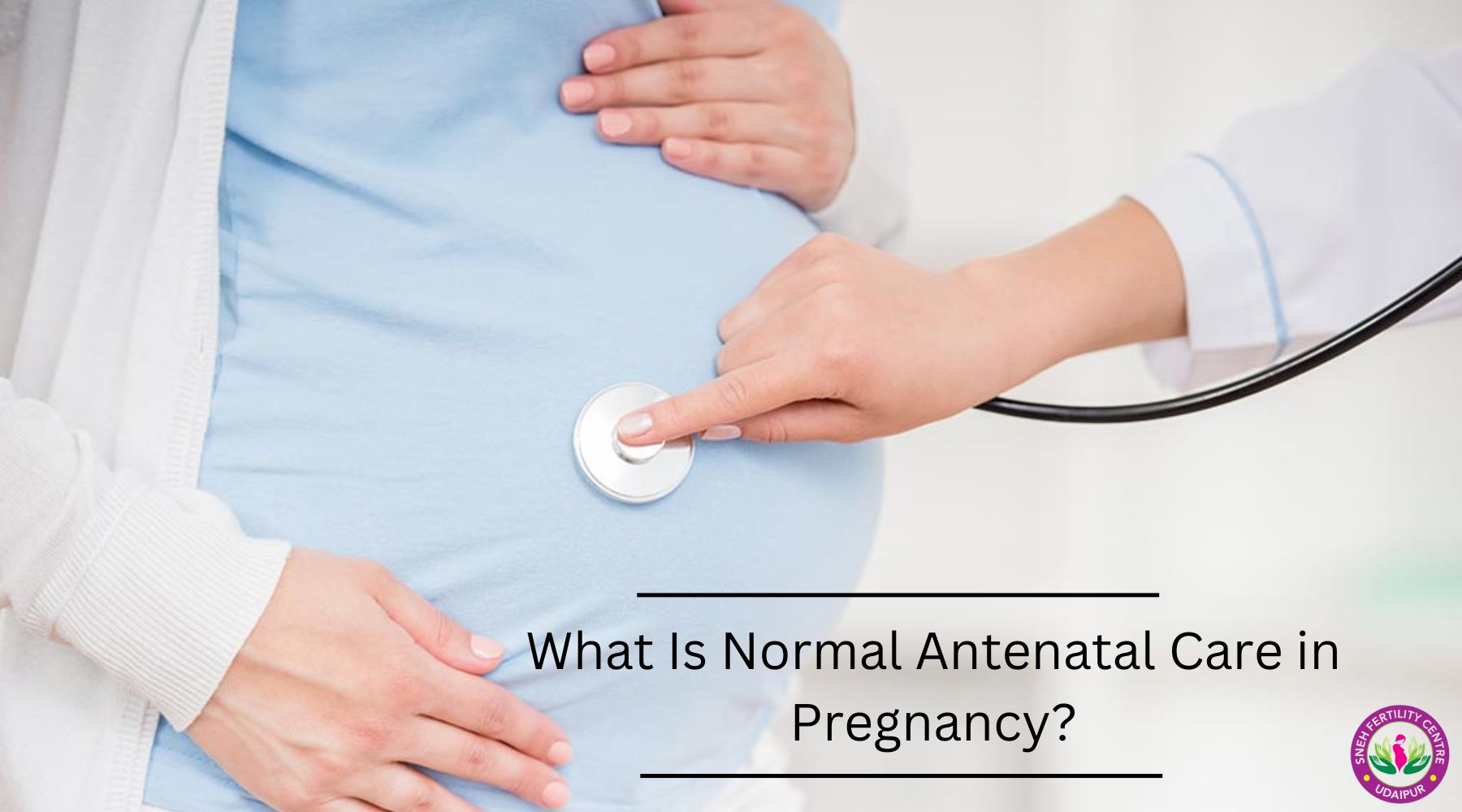Antenatal care is a crucial aspect of pregnancy that ensures the health and well-being of both the mother and the baby. It involves regular medical check-ups, screenings, and guidance from healthcare professionals throughout the pregnancy. Understanding what normal antenatal care entails can help expectant mothers feel more confident and prepared as they navigate this important journey.
What Is Antenatal Care?
Antenatal care, also known as prenatal care, is the care you receive during your pregnancy. It’s designed to monitor your health and the development of your baby, identify any potential issues early on, and provide guidance on maintaining a healthy pregnancy.
Components of Normal Antenatal Care
1. Regular Check-Ups:
- First Trimester (0-12 weeks): The first visit typically occurs around 6-8 weeks of pregnancy. During this visit, your healthcare provider will confirm your pregnancy, calculate your due date, and discuss your medical history. You’ll also undergo initial tests such as blood tests, urine tests, and an ultrasound to check the baby’s development.
- Second Trimester (13-28 weeks): You’ll have check-ups every 4 weeks. These visits include monitoring your blood pressure, measuring your weight gain, and checking the baby’s heartbeat. An anatomy scan, usually done between 18-22 weeks, will assess the baby’s growth and development.
- Third Trimester (29-40 weeks): Check-ups become more frequent, usually every 2-3 weeks, and then weekly in the final month. The focus will be on monitoring the baby’s position, growth, and your overall well-being. Your healthcare provider will also discuss your birth plan and what to expect during labor.
2. Screening Tests:
- Blood Tests: To check for anemia, blood type, Rh factor, and any infections such as HIV or hepatitis.
- Urine Tests: To detect urinary tract infections, gestational diabetes, and preeclampsia.
- Ultrasounds: To monitor the baby’s growth, check for any abnormalities, and determine the baby’s position.
- Glucose Tolerance Test: Typically done between 24-28 weeks to screen for gestational diabetes.
3. Nutritional Guidance: Proper nutrition is vital during pregnancy. Your healthcare provider will offer dietary recommendations to ensure you and your baby are getting the necessary nutrients. This may include guidance on taking prenatal vitamins, increasing your intake of folic acid, iron, and calcium, and maintaining a balanced diet.
4. Monitoring Fetal Development: Throughout your pregnancy, your healthcare provider will monitor the baby’s growth and development. This includes checking the baby’s size, movements, and heart rate to ensure everything is progressing normally.
5. Managing Pregnancy Symptoms: Antenatal care also involves managing common pregnancy symptoms such as nausea, fatigue, back pain, and swelling. Your healthcare provider can offer advice on how to alleviate these symptoms and maintain comfort throughout your pregnancy.
6. Education and Support: Antenatal visits provide an opportunity to ask questions and discuss any concerns you may have. Your healthcare provider will offer education on what to expect during pregnancy, labor, and delivery, as well as postpartum care.
Why Is Antenatal Care Important?
Antenatal care plays a vital role in ensuring a healthy pregnancy and delivery. It helps in:Early Detection of Potential Issues: Regular check-ups and screenings can identify potential complications early, allowing for timely intervention. Guidance on Healthy Lifestyle Choices: Antenatal care includes advice on nutrition, exercise, and avoiding harmful substances like tobacco and alcohol, which can affect the baby’s development. Emotional Support: Pregnancy can be an emotional time. Antenatal care provides a space to discuss any worries or concerns, offering reassurance and support.
Choosing the Right Antenatal Care Provider
At 𝗦𝗻𝗲𝗵 𝗙𝗲𝗿𝘁𝗶𝗹𝗶𝘁𝘆 & 𝗨𝗿𝗼𝗹𝗼𝗴𝘆 𝗖𝗲𝗻𝘁𝗲𝗿, we are committed to providing comprehensive and compassionate antenatal care. Our experienced team of gynecologists and obstetricians will guide you through every step of your pregnancy, ensuring that you and your baby receive the best possible care. From regular check-ups and screenings to personalized advice and support, we’re here to make your pregnancy journey as smooth and healthy as possible.
If you’re pregnant or planning to conceive, contact 𝗦𝗻𝗲𝗵 𝗙𝗲𝗿𝘁𝗶𝗹𝗶𝘁𝘆 & 𝗨𝗿𝗼𝗹𝗼𝗴𝘆 𝗖𝗲𝗻𝘁𝗲𝗿 today to learn more about our antenatal care services. Your health and the health of your baby are our top priorities.






